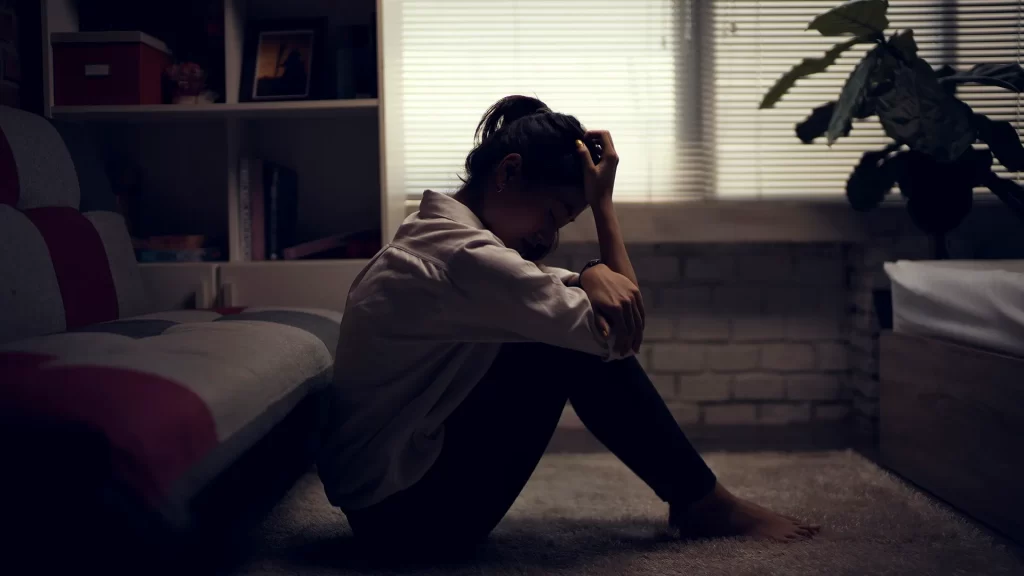Depression
Depression
What is Depression?
Depression is a common and serious mental health disorder characterized by persistent feelings of sadness, hopelessness, and loss of interest in activities once enjoyed. It can significantly impact a person’s daily life, including work, relationships, and physical health. Effective treatment for depression often involves a combination of medications, psychotherapy, lifestyle changes, and support. Here’s an overview of depression and its treatments:

Types of Depression
- Major Depressive Disorder (MDD): Characterized by severe symptoms that interfere with daily functioning and last for at least two weeks.
- Persistent Depressive Disorder (Dysthymia): A chronic form of depression with less severe symptoms that last for at least two years.
- Bipolar Disorder: Involves episodes of depression alternating with episodes of mania or hypomania.
- Seasonal Affective Disorder (SAD): Depression that occurs typically in the winter months when there is less natural sunlight.
- Postpartum Depression: Depression that occurs after childbirth.
- Premenstrual Dysphoric Disorder (PMDD): Severe depression symptoms that occur before menstruation and improve after the period starts.
- Atypical Depression: A subtype of depression where mood can temporarily improve in response to positive events, with symptoms like increased appetite and sleep.
Medications
Antidepressants: These medications are commonly prescribed to treat depression.
- Selective Serotonin Reuptake Inhibitors (SSRIs): Fluoxetine (Prozac), Sertraline (Zoloft), Citalopram (Celexa)
- Serotonin and Norepinephrine Reuptake Inhibitors (SNRIs): Venlafaxine (Effexor), Duloxetine (Cymbalta)
- Atypical Antidepressants: Bupropion (Wellbutrin), Mirtazapine (Remeron)
- Tricyclic Antidepressants (TCAs): Amitriptyline, Nortriptyline (Pamelor)
- Monoamine Oxidase Inhibitors (MAOIs): Phenelzine (Nardil), Tranylcypromine (Parnate)
Other Medications: Sometimes used in combination with antidepressants.
- Antipsychotics: Aripiprazole (Abilify), Quetiapine (Seroquel)
- Mood Stabilizers: Lithium, Lamotrigine (Lamictal)
Psychotherapy
- Cognitive Behavioral Therapy (CBT): Focuses on identifying and changing negative thought patterns and behaviors.
- Interpersonal Therapy (IPT): Focuses on improving interpersonal relationships and communication.
- Psychodynamic Therapy: Explores unconscious patterns and past experiences that influence current behavior.
- Dialectical Behavior Therapy (DBT): A form of CBT that includes mindfulness and emotional regulation techniques, often used for depression with co-occurring borderline personality disorder.
- Behavioral Activation: Focuses on increasing engagement in positive activities to improve mood.
Lifestyle Changes
- Exercise: Regular physical activity can boost mood and overall well-being.
- Healthy Diet: A balanced diet rich in nutrients can support mental health.
- Sleep Hygiene: Maintaining a consistent sleep schedule and creating a restful sleep environment.
- Stress Management: Techniques such as mindfulness, meditation, and yoga can help reduce stress.
Alternative and Complementary Treatments
- Electroconvulsive Therapy (ECT): Used for severe depression that has not responded to other treatments.
- Transcranial Magnetic Stimulation (TMS): A non-invasive procedure that uses magnetic fields to stimulate nerve cells in the brain.
- Vagus Nerve Stimulation (VNS): Involves implanting a device that stimulates the vagus nerve to improve mood.
- Light Therapy: Used for seasonal affective disorder by exposing individuals to bright light.
Support and Self-Care
- Support Groups: Joining a support group can provide a sense of community and understanding.
- Education: Learning about depression and its treatment can empower individuals and their families.
- Social Support: Building a strong support network of family and friends.
- Self-Care: Engaging in activities that promote relaxation and joy.
Comprehensive and Personalized Approach
A comprehensive treatment plan for depression often involves a combination of the above strategies tailored to the individual’s specific needs. Regular follow-up with healthcare providers is essential to monitor progress, make necessary adjustments to the treatment plan, and address any side effects or new symptoms. Collaboration between patients, therapists, psychiatrists, and primary care providers ensures a holistic approach to managing depression.
741-741
If you’re in emotional distress, text HOME to connect with a counselor immediately.
988
Call or text the National Suicide Prevention Lifeline for 24/7 emotional support.
911
If you’re having a medical or mental health emergency, call 911 or go to your local ER.
